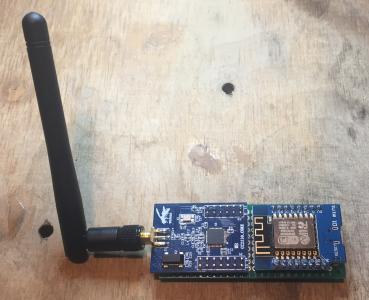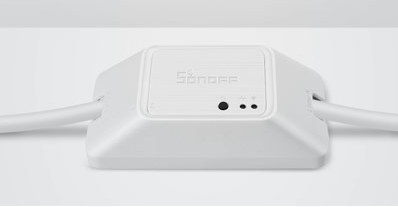Sonoff-Tasmota is a popular open-source firmware designed to run on ESP8266 hardware for home automation projects. It was initially designed to run on devices from ITEAD Studio Sonoff family but now supports more products, boards, and modules from other brands such as Shelly, Wemos, Blitzwolf, and others. So the first news is that the project has recently been renamed from Sonoff-Tasmota to just Tasmota, and documentation has been moved from Github Wiki to Github.io.
Tasmota Zigbee Support
A piece of more important news is that Tasmota now supports Zigbee. More specifically, the Z2T (Zigbee to Tasmota) concept allows you to make your own Zigbee to WiFi bridge by combining Z-Stack-firmware on CC2530 and Tasmota firmware on ESP8266 / ESP82xx hardware.

Basically all you need is ESP82xx hardware connected to a Texas Instruments C2530 based Zigbee device over a serial. Note that C2531 based device won’t work since they are connected over USB.
Normally, C2530 firmware is flashed through CC Debugger tool, but in this case, you don’t need to purchase extra hardware since Z-Stack firmware flashing can be performed through any ESP8266 board running CCLib instead. Once it’s done flash Zigbee2Tasmota Tasmota firmware to your ESP82xx board or device, and you need to configure the system for communication between the Zigbee module and ESP8266. This is all explained in detail in the documentation.
Sonoff Basic R3 Zigbee
While looking into the subject I noticed ITEAD Studio had a Zigbee capable hardware: Sonoff Basic R3 Zigbee sold for around $8.5 on their website, or Banggood.
 It could look like a potential candidate to act as a Tasmota WiFi <-> Zigbee bridge until we look at the specs:
It could look like a potential candidate to act as a Tasmota WiFi <-> Zigbee bridge until we look at the specs:
- Max Current – 10A
- Max.input – AC 100-240V 50/60Hz 10A
- Max.output – AC 100-240V 50/60Hz 10A
- Gang: 1
- Zigbee – IEEE 802.15.4 2.4GHz
- Enclosure Material – PC V0
- Dimensions – 91x43x25 mm
There’s no WiFi at all, and it’s a Zigbee only switch. Not Enough TECH did a teardown and confirmed it’s based on C2530 chip. So maybe that explains why the documentation shows a gateway prototype (top photo) since there may not be off-the-shelf hardware that can be used for this purpose just yet.
Thanks to Andreas for the tip.

Jean-Luc started CNX Software in 2010 as a part-time endeavor, before quitting his job as a software engineering manager, and starting to write daily news, and reviews full time later in 2011.
Support CNX Software! Donate via cryptocurrencies, become a Patron on Patreon, or purchase goods on Amazon or Aliexpress




